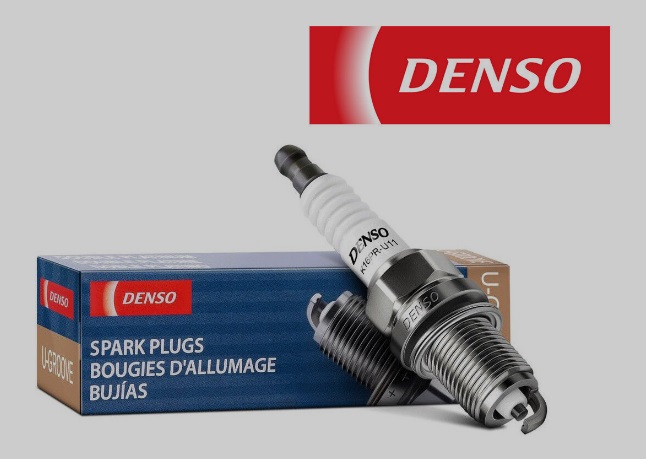Denso Stock Analysis: A Critical Player in the Automotive Ecosystem

Denso Corporation (DNZOY) is a leading global supplier of advanced automotive technology, systems, and components. While it may not be a household name like Toyota or Ford, Denso plays a vital role in the automotive ecosystem, providing essential technologies for vehicles worldwide. As the industry shifts toward electrification, connectivity, and autonomous driving, Denso is adapting its strategy and investing in innovation. This article provides a comprehensive Denso stock analysis, focusing on its Return on Equity (ROE), growth strategy, strengths, weaknesses, and competitive landscape.
What is ROE, and Why Does it Matter for Denso Stock?
Return on Equity (ROE) is a crucial financial metric that measures a company’s profitability relative to its shareholders’ equity. A higher ROE typically signifies better financial performance and stronger returns for investors considering Denso stock.
Denso’s ROE: A History of Stability and Adaptation
Denso has a long track record of solid financial performance, and its ROE over the past decade reflects this stability. The company has consistently delivered returns for investors, demonstrating its ability to navigate economic cycles and industry changes.
- Consistent Profitability: Denso has a history of generating profits and maintaining a healthy ROE, even during challenging economic periods, highlighting its strong financial foundation.
- Focus on Efficiency: The company emphasizes operational efficiency, cost control, and continuous improvement (kaizen), all of which contribute to its solid ROE.
- Dividend Payouts: Denso has consistently returned value to shareholders through dividends, supported by its reliable profitability.
- Investing in the Future: While maintaining its core business, Denso is investing in new technologies, such as electrification, autonomous driving, and connected vehicles, positioning itself for the future of mobility.
Understanding Denso: A Vital Player in the Automotive Ecosystem
To fully assess Denso’s investment potential, it is essential to look beyond its financial performance and consider its strategic direction, strengths, weaknesses, and competitive landscape.
Denso’s Vision: “Bringing Hope for the Future for All”
Denso’s vision is to contribute to a better world by creating innovative solutions for a safer and more sustainable future of mobility. This includes a strong commitment to:
- Electrification: Developing and supplying components and systems for electric vehicles, including motors, inverters, and battery management systems.
- Autonomous Driving: Investing in advanced driver-assistance systems (ADAS) and autonomous driving technologies to enhance safety and convenience.
- Connectivity: Developing connected vehicle technologies to improve communication, data sharing, and vehicle management.
Strengths of Denso Corporation
- Technological Expertise: Denso is well-regarded for its technological innovation across various automotive domains, including powertrains, thermal systems, electronics, and safety systems.
- Global Presence: Denso has a significant global footprint, with manufacturing and sales operations in multiple regions, allowing it to adapt to regional market demands.
- Strong Customer Relationships: Denso has established long-term relationships with major automakers, including Toyota, which is a significant shareholder.
- Diversified Product Portfolio: Denso offers a wide range of automotive components and systems, providing resilience against fluctuations in specific market segments.
Weaknesses of Denso
- Dependence on the Automotive Industry: As a major automotive supplier, Denso’s performance is closely tied to the health of the global automotive industry, which can be cyclical.
- Intense Competition: Denso faces competition from other major automotive suppliers, including Bosch, Continental, and ZF Friedrichshafen.
- Supply Chain Disruptions: Global supply chain challenges, such as semiconductor shortages, can affect Denso’s production and profitability.
Denso’s Competitors: The Automotive Supplier Landscape
Denso operates in a competitive landscape with several major players:
- Bosch: A global leader in automotive technology, competing in various segments, including powertrains and electrification.
- Continental: Another leading supplier specializing in tires, powertrains, and chassis systems.
- ZF Friedrichshafen: Known for its transmissions and powertrain technologies, particularly in electrification.
- Aptiv: A technology company focused on developing solutions for autonomous driving and connected vehicles.
Denso’s Key Projects
- Electrification Components: Developing key components for electric vehicles, including electric motors and inverters.
- ADAS and Autonomous Driving: Investing in advanced driver-assistance systems and technologies for autonomous driving.
- Connected Vehicle Solutions: Developing technologies to enhance communication and vehicle management.
Denso’s Future: Powering the Next Generation of Mobility
Denso’s future will be shaped by its ability to adapt to the evolving automotive landscape and continue innovating in key technology areas. Key factors that will influence its success include:
- EV Adoption: The pace of electric vehicle adoption is crucial for Denso’s growth in electrification.
- Technological Advancements: Denso must continue to invest in advanced technologies to remain competitive in autonomous driving and connectivity.
- Competition: Denso will need to differentiate itself from competitors and offer compelling solutions to maintain its market share.
Is Denso Stock a Good Investment?
Denso is a leading global automotive supplier with a strong track record of profitability and a diverse product portfolio. The company is well-positioned to benefit from the growth of electrification and other trends in the automotive industry. However, potential investors should carefully consider the risks and opportunities associated with investing in a company operating in a cyclical and competitive industry. A thorough assessment of market trends, Denso’s technological advancements, and its ability to mitigate risks is essential for making an informed investment decision.





